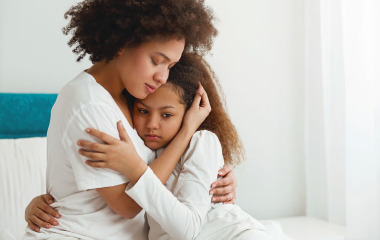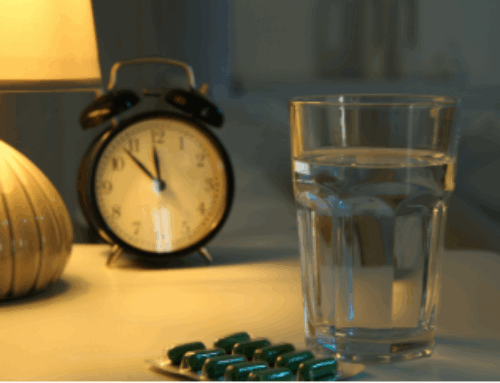The value of sleep is reflected in a child’s smiling face, happy nature and natural energy.
A well-rested child is more likely to be healthy and energetic. He or she also is more likely to get better grades in school and have a positive attitude toward life. The American Academy of Sleep Medicine recommends that pre-school children get 11 to 13 hours of nightly sleep. Schoolchildren should get 10 to 11 hours of sleep each night.
Poor sleep can increase the risk of physical health problems. These include obesity, heart disease and diabetes. A tired child also may have emotional or behavioral problems.
A study in the April 7 issue of the Archives of Pediatrics & Adolescent Medicine shows that child sleep problems can have a lasting impact. Children who get less sleep than their peers have a higher risk of anxiety, depression and aggressive behavior as adults. The study involved 2,076 children. Parents rated their child’s sleep and behaviors. When the children became adults, they reported their own emotional and behavioral symptoms.
The National Institutes of Health (NIH) describes these common signs of anxiety in children:
- Excessive worrying about ordinary activities. These include going to school, taking a test or performing in sports.
- Physical symptoms. These include sweating, trembling, stomach aches, and headaches.
- Social withdrawal. This may occur when they avoid certain situations or people.
A study in the journal Sleep in 2007 examined the sleep durations of children. Results show that children who get less sleep are more likely to have behavioral problems in the classroom. The study focused on 1,492 children. They were studied each year from five months of age to six years. Parents rated their child’s inattention and daytime sleepiness for each of those years. Children with short sleep durations were more likely to be inattentive.
Another study published in the journal Sleep in 2007 linked child sleep problems to depression. It found that depression is more severe in children with sleep disturbances. These children have more depressive symptoms and anxiety disorders. The study involved 553 children with a depressive disorder. Results show that 72.7 percent of the children had a sleep disturbance. Nine percent had hypersomnia and 53.5 percent had insomnia. Ten percent had both sleep problems.
The NIH reports that the effects of major depression can be disabling. Signs of major depression include:
- Being unable to sleep, work, and function normally
- No longer enjoying fun activities
- Ongoing sadness
- Feelings of hopelessness
- Restlessness
- Fatigue
- Insomnia
- Eating too much or too little
- Suicidal thoughts
A study in the Journal of Clinical Sleep Medicine in 2006 also found that sleep problems are common in children with mental disorders. The study noted that children with attention-deficit/hyperactivity disorder (ADHD) and an anxiety or mood disorder are more likely to report sleep problems. Children with more severe mental problems had more severe sleep problems.
Poor sleep also can lead to aggressive behavior in children. Symptoms may include:
- Fighting with others
- Destroying property
- Yelling
- Making threats
- Causing harm to self
It is important to make sure that your child gets enough sleep and sleeps well. If your child has an ongoing sleep problem, then you should talk to your child’s doctor or to a sleep specialist. Help can be found at sleep disorders centers that are accredited by the American Academy of Sleep Medicine. You can find an AASM-accredited sleep center near you.





